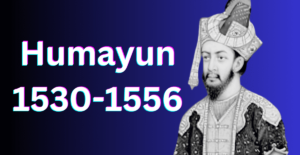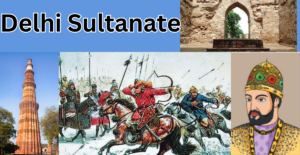Literature During Mughal Empire
Literature During Mughal Empire:
Official languages:
Persian, Sanskrit and regional languages flourished during the Mughal period.Persian was the official language of the Mughal Empire and the Deccan states.
Notable Persian works:
Abul Fazl’s ‘Akbar Nama‘ narrates the history of Akbar.‘Aini Akbari‘ by Abul Fazl provides insights on Mughal administration, science, statistics, geography and culture.‘Badshah Nama’, co-written by Abdul Hamid Lahori and Muhammad Waris, is based on Shah Jahan’s biography ‘Ain-i-Akbari ‘.Muhammad Qasim wrote ‘Alamgir Nama‘ about the first ten years of Aurangzeb‘s reign .
Translations and Implications:
Babur’s autobiography was translated into Persian in Sakatai Turkish.Persian flourished due to translations of Sanskrit texts including the Mahabharata.Liberico translated the Upanishads into Persian as ‘Sar-i-Akbar‘.Abul Faizi’s Masnavi, Utbi and Nasiri enriched Persian poetry in India.
Sanskrit Literature:
Sanskrit literature during the Mughal period was known for historical poetry (epic).Prajnapada compiled the entire history of Kalhanar’s Kashmir during the reign of Akbar.Nilakantha and Jagannath Pandit contributed to astronomical and special studies in Sanskrit .
Regional Language Developments:
Regional languages grew in strength.Examples include devotional songs in Abdur Rahim Khan-i-Khanan’s Briji (a subsidiary language of Hindi).Marathi literature flourished due to the works of Ekanath, Tukaram, Ramdas and Mukteshwar.Vijayanagara Emperor Krishna Deva Raya‘s ‘Amuktamalayata‘ and Allasani Pedanna’s ‘Manucharitra ‘ are notable in Telugu literature.Malayalam split from Tamil and attained literary status .Assamese literature includes texts on astronomy, mathematics, and epics such as the Ramayana and the Mahabharata.The Chaitanya cult enriched Bengali literature, while the songs of the Sikh Gurus contributed to the evolution of the Punjabi language.
Developments in Tamil Literature:
Saiva and Vaishnava literature influenced Tamil literature.The Saiva poet Kumaraguruparar wrote important works.Christian missionaries like Robert de Nobili and Constantine Joseph Pesci contributed to the development of the Tamil language.
The major literature of the Mughal period were:
| Title | Author(s) | description |
| Baburnama | Abdul Rahim Khan-i-Khanan | Translation of Tuzuk Babari I |
| Akbarnama | Abdul Fazal | History of Akbar |
| Ain-e-Akbari | Abdul Fazal | Akbar’s administrative book |
| Tuzuk-e-Jahangiri | Jahangir | Biography |
| Iqbalnama-i-Jahangir | Mummeet Khan | Biography of Jahangir |
| Pathanamaha | Abdul Hamid Lahori & Inayat Khan | Biography of Shah Jahan |
| Padmaavat | Malik Muhammad Jaisi | A metaphor exploring Sufi and Hindu ideas |
| Ramacharitmanas | Tulsidas | Epic poem on Rama |
| Works of Faizi | Faizi | Poems and Translations |
| Dictionaries compiled by Hindus | Various authors | Persian dictionaries |
| Regional Language Poetry | Various authors | Poems in Bengali, Oriya and Hindi. |
conclusion:
Through patronage and encouragement from Mughal rulers, scholars, poets, and writers flourished, producing enduring works that reflect the diverse traditions and influences of the time. From the Persianate courtly poetry of Akbar’s era to the vernacular literature of the later periods, Mughal literature not only mirrored the societal norms and values but also transcended them, offering insights into the complexities of human experience.



